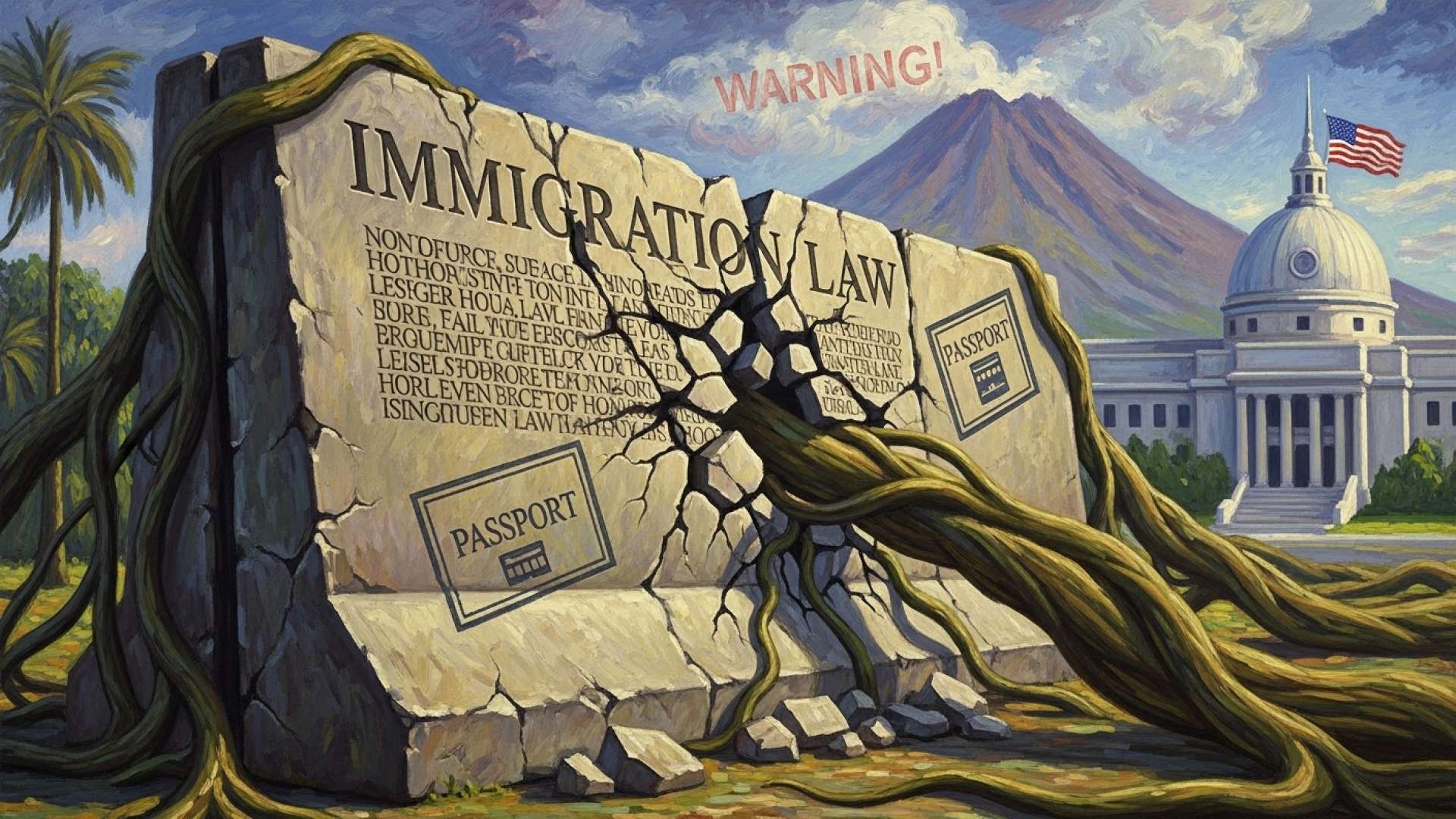San José, Costa Rica — San José – The United States Embassy in Costa Rica has issued a stark and unequivocal warning to all Costa Rican travelers: a single misstep, whether on U.S. soil or during the application process, can result in the immediate and permanent revocation of a U.S. visa. The diplomatic mission is emphasizing that what many consider minor infractions could unravel travel plans and close the door to the United States for years to come.
In a recent social media campaign aimed at educating the public, the embassy highlighted that a U.S. visa is not an inherent right but a privilege granted by the U.S. government. This privilege can be withdrawn at any time if a traveler fails to comply with the country’s laws. The message serves as a crucial reminder for thousands of Costa Ricans who travel to the U.S. for tourism, business, or to visit family, urging them to maintain an impeccable record.
To gain a deeper understanding of the legal ramifications and processes involved in the revocation of U.S. visas, TicosLand.com consulted with renowned legal expert Lic. Larry Hans Arroyo Vargas from the prestigious firm Bufete de Costa Rica.
The revocation of a U.S. visa is a serious matter, often executed at the broad discretion of a consular officer and typically lacks a formal judicial appeal process. Reasons can range from suspected misrepresentation on an application to information that emerges after the visa has been issued. For individuals facing this situation, the immediate path forward isn’t an appeal, but rather understanding the basis for the revocation and, if eligible, preparing a new, meticulously documented application or seeking a waiver of ineligibility. Honesty and transparency are paramount in all interactions with U.S. immigration authorities.
Lic. Larry Hans Arroyo Vargas, Attorney at Law, Bufete de Costa Rica
This expert guidance powerfully underscores that the path forward after a visa revocation is not a legal appeal, but a strategic re-application built on absolute integrity and thoroughness. We sincerely thank Lic. Larry Hans Arroyo Vargas for providing such a clear and actionable perspective on a challenging and often misunderstood process.
One of the most common yet perilous mistakes a visitor can make is driving under the influence of alcohol. While it may seem like a lapse in judgment during a vacation, U.S. authorities treat a DUI as a serious offense with significant legal and migratory consequences. An arrest for drunk driving can trigger an immediate review of a person’s visa status, often leading to its cancellation, even if the individual is already within U.S. territory.
Drinking and driving is against U.S. law. If people with visas drive under the influence of alcohol during a trip in the United States, they risk being detained and having their visa revoked.
U.S. Embassy in Costa Rica, Diplomatic Mission
The embassy’s warning extends beyond actions taken while visiting the United States. Deception during the visa application or renewal process is another critical error that carries severe penalties. Officials stressed that absolute honesty is non-negotiable. Attempting to conceal a criminal record, regardless of how minor the offense may seem, is considered a grave fault that can lead to an immediate and permanent ban from entering the country.
Prospective travelers are being cautioned against the false assumption that past legal troubles can be hidden. Consular officers are equipped with sophisticated tools and have access to international criminal history databases, making any attempt at concealment a futile and high-stakes gamble. The embassy’s message makes it clear that transparency is the only viable path forward for applicants.
Having a criminal record can permanently prevent you from entering the United States. Even minor offenses can be grounds for denying a visa.
U.S. Embassy in Costa Rica, Diplomatic Mission
The core of the embassy’s guidance is straightforward: tell the truth and obey the law. These two principles form the foundation of maintaining a valid visa and ensuring future travel opportunities. The consequences of failing to do so are not temporary setbacks but can create irreversible barriers, turning a dream trip into a long-term immigration nightmare.
In conclusion, the U.S. Embassy’s directive is a clear call for diligence and integrity. For Costa Ricans hoping to travel to the United States, the message is to respect the laws of the host country and to be completely forthright in all dealings with consular officials. Any deviation from this standard, whether through a DUI on an American highway or a lie during an interview, could mean the end of their U.S. travel privileges.
For further information, visit cr.usembassy.gov
About U.S. Embassy in Costa Rica:
The U.S. Embassy in San José, Costa Rica, represents the interests of the United States government in the country. It is responsible for a wide range of diplomatic activities, including providing consular services to American citizens, processing visa applications for Costa Rican nationals, and fostering bilateral relations in areas such as trade, security, and cultural exchange. The embassy serves as a crucial link between the two nations, promoting cooperation and mutual understanding.
For further information, visit bufetedecostarica.com
About Bufete de Costa Rica:
Bufete de Costa Rica stands as a cornerstone of the legal community, defined by its resolute commitment to integrity and the highest caliber of professional excellence. Drawing upon a rich heritage of advising clients across a wide array of industries, the firm is also a vanguard of legal innovation. This forward-looking spirit is fundamentally linked to its civic mission: to empower the broader community by transforming intricate legal concepts into accessible, practical knowledge, thereby fostering a society that is both more informed and capable.









